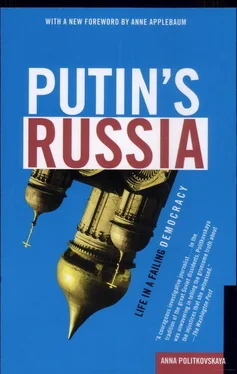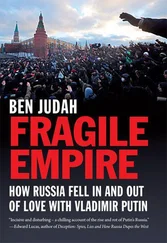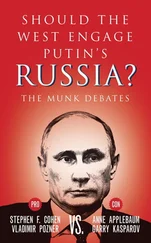“For an entire year we sent information to the military prosecutor’s office, primarily to Mr. Chernov, the garrison prosecutor, but also to everyone higher up the hierarchy, right up to the chief military prosecutor’s office in Moscow, about the crimes committed by the officers of Unit 20004,” Tatyana Zozulenko says. “In terms of the number of complaints we receive from soldiers, Unit 20004 is top of the list. The officers beat their soldiers and extort their active service payments from those who have returned from Chechnya. We have yelled about this from the rooftops, but nothing has happened. The prosecutor’s office has decided to keep everything quiet. The episode at the training ground is a wholly predictable result of army officers’ lack of accountability.” [1] The story of the fifty-four soldiers received extensive publicity, with the result that an official inquiry was held under the auspices of the chief military prosecutor’s office. The investigation found that while in their training of the soldiers the officers had exceeded their authority, the soldiers’ misconduct on the training ground had provoked the officers into losing their tempers. The case did not come to court, and none of the officers received a criminal sentence. The soldiers were dispersed to different units to prevent them from causing further trouble. This judgment of Solomon was produced by a legal system specifically for those in the armed forces. Such cases are investigated by military prosecutors and passed on to military courts. The prosecutors and the military judges are themselves members of the armed forces who have sworn an oath of loyalty and are subordinate to their superiors, and so on right up to the minister of defense. Accordingly, at every level, prosecutors and judges cannot be independent in their judgments.
Misha Nikolaev lived in Moscow Province. His family saw him off to the army in July 2001. He was sent to the Border Guards, to a frontier post ten hours’ flying time from Moscow, at the village of Goryachy Plyazh, on Anuchina Island in the Lesser Kurils—the Pacific islands that have vexed Russian and Japanese politicians since the end of the Second World War.
While the two nations argue, someone has to police the border. Misha was one of those doing the job. He lasted just six months at this outpost of the Russian Far East and died on December 22, 2001. By the autumn he had already been writing alarming letters home, having discovered festering sores on his body. He asked his family to send medicine: Vishnevsky’s Balm, sulfanilamide, “in fact, any medicines for treating suppuration, metapyrin, antiseptic, bandages and as much sticking plaster as possible. There is nothing here.” His parents sent off the parcels without complaining; aware that the army is underfunded, they assumed that things could not be all that bad, since Misha was still working as a cook in the army’s kitchens. If he was seriously ill, his parents supposed, he wouldn’t be allowed anywhere near food preparation.
Even when his skin was covered with oozing sores, though, Misha continued to cook meals for the troops. The pathologist who conducted the autopsy reported that the unfortunate soldier’s tissues literally split apart under the scalpel. At the beginning of the twenty-first century, a Russian soldier rotted alive under the eyes of his officers, receiving no medical attention at all. What killed Misha was the complete lack of responsibility of his superiors.
DMITRY KISELEV WAS posted to serve in the Moscow Province village of Istra. In Russia such an assignment is regarded as a stroke of luck. He was close to Moscow; his parents, being Muscovites, could visit their son and battle their way through to his commanding officer if he needed help. It was not the Kuril Islands. The location did not, however, save Dmitry from his officers’ depravity.
Lieutenant Colonel Alexander Boronenkov, Private Kiselev’s commanding officer, had a lucrative sideline. Nothing too unusual about that in today’s army. People are up to all sorts of tricks, because their wages don’t amount to much. This particular lieutenant colonel’s enterprise was trading in soldiers. Istra is a dacha settlement of second homes, and Boronenkov sold his soldiers to the owners of nearby plots of land as cheap labor. The soldiers worked only for food; their pay went straight to their commanding officer. This moneymaking scheme is by no means unique. Indeed, it is widespread: soldiers become the unpaid laborers—that is, slaves—of wealthy people for the duration of their military service. In some cases, the officers use the troops as a means of bartering with people they think of as useful. If an officer needs his car repaired and has no money, he herds a few soldiers along to the local body shop. They work there, unpaid, for as long as the shop requires; in return, the officer gets his car fixed.
In late June 2002, it was the turn of the newly conscripted Dmitry Kiselev to be sold into slavery. Private Kiselev was sent to build a house for a certain member of the Mir Horticultural Association in Istra District. Initially he was constructing a house, but then he and seven other conscripts were required to dig a deep trench the length of the plot. On July 2 at seven in the evening, the sides of the trench collapsed, burying three of the troops, including Dmitry, who suffocated under the earth. His parents tried to have Lieutenant Colonel Boronenkov brought to trial, but he wriggled out of it. He knew a lot of useful people. Dmitry was the Kiselevs’ only son. [2] This incident was handled in much the same way as the case of the fifty-four soldiers. An inquiry was held by the garrison prosecutor’s office, whose employees were effectively subordinate to the commanding officer of the military unit in which the incident occurred. Again the prosecutor’s office acquitted the officers. The illegal “sale” and “renting out” of soldiers as inexpensive laborers, usually by their junior officers and in order to carry out particular agricultural or building tasks, is common practice in Russia. Payment usually goes to the officers for their role in the deal. It is extremely rare for the soldiers to be paid other than in food, cigarettes, and overnight accommodations. Occasionally no payment is involved. If the officer and the employer are decent people, the soldiers may be moved out of their units for a time simply because they can be more adequately fed away from the army.
ON AUGUST 28, 2002, Army Unit 42839 was deployed in Chechnya, not far from the village of Kalinovskaya, a place where there had been no fighting for a long time. The Granddads were drinking themselves silly. Granddads—ordinary soldiers about to be demobilized into the reserves—are the most terrifying, murderous force in the army. In the evening it seemed to the Granddads that they were running short of vodka, so they told the first soldier who came along, Yury Diachenko, to go into the village and “get some more from wherever you like.” The soldier refused. In the first place, he was on duty guarding a section of the perimeter and had no right to leave his post. In the second place, as he explained, he had no money. The Granddads told him to steal something in the village and get them the vodka that way.
Yury, however, said firmly, “No. I won’t go.” They beat him brutally until five in the morning, and between beatings subjected him to cruel and disgusting humiliations. They dipped a floor cloth into the latrine and rubbed the filth in Yury’s face. They forced him to clean the floor, and when he bent over, took turns ramming the handle of the mop into his anus. To conclude their training session, as they called it, the Granddads dragged Yury into the canteen and forced him to eat a three-liter can of kasha, beating him if he tried to stop.
Читать дальше





![Stephan Orth - Behind Putin's Curtain - Friendships and Misadventures Inside Russia [aka Couchsurfing in Russia]](/books/415210/stephan-orth-behind-putin-s-curtain-friendships-a-thumb.webp)






